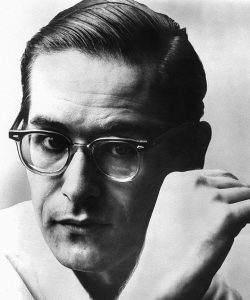Introducing Dionisio Ramón Emilio Valdés Amaro (aka Bebo Valdés).
We’ve paid a lot of attention to the African roots of Cuban music, and rightly so.
In this video, we tip our hat to the Spanish father too.
(“Want to understand Cuba? Remember: Spanish father, African mother.”)
Of course, Spain (and Portugal) had its own African influences. In 711, a raiding force of Berbers from northwestern Africa invaded the Iberian peninsula and held various portions of it for over 700 years creating a culture unique in Europe.
In this video, Spanish cantaor (flamenco singer) Diego Ramón Jiménez Salazar (Diego el Cigala) performs with Bebo Valdés.
Who was Bebo?
Pianist, bandleader, composer, and arranger Dionisio Ramón Emilio Valdés Amaro was born on October 9, 1918 in Quivicán, Cuba a small city in the western part of the island, in the south and facing the Caribbean Sea.
He began his professional career as a pianist in Havana night clubs in the 1940s and in the 1950s was leading his own orchestra, holding down a regular slot at the Tropicana and backing singers like Benny Moré and Pío Leyva.
Valdés played an important role in adapting the mambo to the big band format (it was previously performed by charanga orchestras.)
He also created his own rhythm to compete with Pérez Prado’s mambo, which he called the batanga.
Valdés was a key player in the Afro-Cuban jazz scene in Havana and worked with producer Norman Granz to document the movement in the early 1950s.
Career rebirth
In 1960 Bebo left the island and went into exile, spending some time in Mexico and the US before eventually settling in Stockholm, Sweden to be with the love of his life there.
Off the music industry’s radar and a representative of “old” music from a country that was essentially commercially blockaded, Bebo’s work fell out of public awareness.
But his gift, continuously cultivated in Stockholm hotel piano lounges, proved to be too brilliant to be forgotten.
When he was 76, Cuban saxophone player Paquito D’Rivera produced a session with him called “Bebo Rides Again” and captured it on CD.
At 82, Fernando Trueba had the good judgement to include Bebo in the film “Calle 54” which brought his art to a new and wider audience.
When he was 85, he and Diego El Cigala recorded the album “Lágrimas Negras” (Black Tears) and toured together widely.
Here Bebo plays with a group of young Brazilian musicians in the film “The Miracle of Candeal” (El Milagro de Candeal.)
“The Miracle” is about the Brazilian favela (ghetto) of Candeal, where the young residents gave up their guns for musical instruments under the leadership of rocker Carlinhos Brown.
– Ken McCarthy
Jazz on the Tube
P.S. Our unique programming is made possible by help from people like you. Learn how you can contribute to our efforts here: Support Jazz on the Tube
Thanks.







